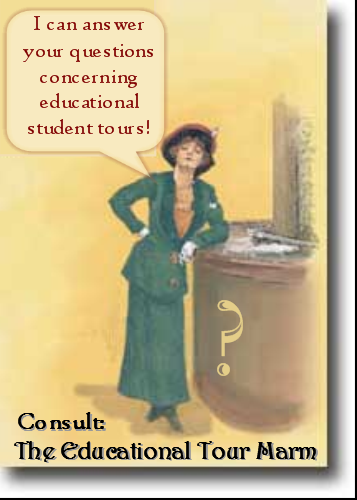Kirkland Memorial: Humanity and Godliness on the Battlefield
Richard Rowland Kirkland
Angel of Marye’s Heights
The bronze effigy atop the remains of Lieutenant John Meigs is where I pause at Arlington National Cemetery for a special teaching moment concerning the brutality of war and the history of the cemetery.
In contrast, the Felix De Weldon statue that was installed in 1965 and serves as a monument to Richard Rowland Kirkland’s compassion in Fredericksburg, is on the way to or from Washington, DC and Williamsburg and where I often take a detour off I95 for a teaching moment about humanity and Godliness on the battlefield.
Richard Rowland Kirkland was born of a humble farm family sometime in August 1843 in Kershaw County South Carolina. Not much is known about his early life, but he was the fifth son of Mary and John Kirkland of Flat Rock, a farm community in Kershaw County. Kirkland has been described as a slender, but muscular young man of about 5’8” and 150 lbs. He was known for both his horsemanship and marksmanship. His letters written during the war reflect his modest education and deep Christian faith.
He was eager to fight for his state and his country, the newly formed Confederate States of America, and enlisted before his older brothers. Initially, he served as a private in Company E, 2nd South Carolina, but after a year switched to Company G where he joined many of his friends and was quickly promoted to sergeant. By the time he reached Marye’s (pronounced Marie’s) Heights in Fredericks burg in December of 1862, he was a seasoned combat veteran of such battles as the First Manassas (Bull Run) and Sharpsburg (Antietam). He was 19 years old.
After setting up the battle conditions in cold December, I normally pose the question to my students, “Would you risk you life to bring comfort to the enemy?” Interestingly enough the range of answers and thoughts are the same whether it is a Christian, public, or private school; most would not.
But Sgt. Kirkland’s magnificence in his Good Samaritan act brings to light that the soldiers fighting on both sides were American brothers. It also reminds me of something Gen. Washington said that is carved into the memorial amphitheatre in Arlington National Cemetery: When we assumed the soldier, we did not lay aside the citizen.
Rather than summarize the battle and Kirkland’s heroics, I feel it more appropriate that you read the words of his commanding officer, General Joseph Brevard Kershaw (photo above):
Richard Kirkland, The Humane Hero Of Fredericksburg
By
General J. B. Kershaw.
(The following incident, originally published in the Charleston News and Courier, deserves a place in our records, and we cheerfully comply with requests to publish it, which have come from various quarters.)
Camden, S.C., January 2d, 1880.
To the Editor of the News and Courier:
Your Columbia correspondent referred to the incident narrated here, telling the story as 'twas told to him, and inviting corrections. As such a deed should be recorded in the rigid simplicity of actual truth, I take the liberty of sending you for publication an accurate account of a transaction every feature of which is indelibly impressed upon my memory.
Yours very truly,
J. B. Kershaw.
Richard Kirkland was the son of John Kirkland, an estimable citizen of Kershaw County, a plain, substantial farmer of the olden time. In 1861 he entered as a private Captain J.D. Kennedy's company (E) of the Second South Carolina volunteers, in which company he was a sergeant in December 1869.
The day after the sanguinary battle of Fredericksburg, Kershaw's brigade occupied the road at the foot of Marye's hill and the ground about Marye's house, the scene of their desperate defence of the day before. One hundred and fifty yards in front of the road, the stone facing of which constituted the famous stone wall, lay Syke's division of regulars, U.S.A., between whom and our troops a murderous skirmish occupied the whole day, fatal to many who heedlessly exposed themselves, even for a moment. The ground between the lines was bridged with the wounded' dead and dying Federals, victims of the many desperate and gallant assaults of that column of 30,000 brave men hurled vainly against that impregnable position.
All that day those wounded men rent the air with their groans and their agonizing cries of "Water! water!" In the afternoon the General sat in the north room, up stairs, of Mrs. Stevens' house, in front of the road, surveying the field, when Kirkland came up. With an expression of indignant remonstrance pervading his person, his manner and the tone of his voice, he said:
"General! I can't stand this."
"What is the matter, Sergeant?" asked the General.
He replied, "All night and all day I have heard those poor people crying for water, and I can stand it no longer. I come to ask permission to go and give them water."
The General regarded him for a moment with feelings of profound admiration, and said: "Kirkland, don't you know that you would get a bullet through your head the moment you stepped over the wall?"
"Yes, sir," he said, "I know that; but if you will let me, I am willing to try it."
After a pause, the General said, "Kirkland, I ought not to allow you to run a risk, but the sentiment which actuates you is so noble that I will not refuse your request, trusting that God may protect you. You may go."
The Sergeant's eye lighted up with pleasure. He said, "Thank you, sir," and ran rapidly down stairs. The General heard him pause for a moment, and then return, bounding two steps at a time. He thought the Sergeant's heart had failed him. He was mistaken. The Sergeant stopped at the door and said: "General, can I show a white handkerchief?" The General slowly shook his head, saying emphatically, "No, Kirkland, you can't do that." "All right," he said, "I'll take the chances," and ran down with a bright smile on his handsome countenance.
With profound anxiety he was watched as he stepped over the wall on his errand of mercy -- Christ- like mercy. Unharmed he reached the nearest sufferer. He knelt beside him, tenderly raised the drooping head, rested it gently upon his own noble breast, and poured the precious life- giving fluid down the fever scorched throat. This done, he laid him tenderly down, placed his knapsack under his head, straightened out his broken limb, spread his overcoat over him, replaced his empty canteen with a full one, and turned to another sufferer. By this time his purpose was well understood on both sides, and all danger was over. From all parts of the field arose fresh cries of "Water, water; for God's sake, water!" More piteous still the mute appeal of some who could only feebly lift a hand to say, here, too, is life and suffering.
For an hour and a half did this ministering angel pursue his labor of mercy, nor ceased to go and return until he relieved all the wounded on that part of the field. He returned to his post wholly unhurt. Who shall say how sweet his rest that winter's night beneath the cold stars!
Little remains to be told. Sergeant Kirkland distinguished himself in battle at Gettysburg, and was promoted lieutenant. At Chickamauga he fell on the field of battle, in the hour of victory. He was but a youth when called away, and had never formed those ties from which might have resulted in a posterity to enjoy his fame and bless his country; but he has bequeathed to the American youth -- yea, to the world -- an example which dignifies our common humanity. *
********************************************************
Lt. Kirkland is buried a few paces away from his commanding officer at the Old Quaker Cemetery, Camden, Kershaw County, South Carolina.
According to some sources, Lt. Kirkland’s last words were, “Save yourselves, and tell my father I died right.”
He lived right.
Proverbs 25:21 Romans 12:20
*******************************************************
There is also a story that General Sherman spared the Kirkland House as his name was legend on the lips of both Union and Confederate soldiers. Unfortunately, the house no longer exists.
* Source: Southern Historical Society Papers, Vol. VIII. Richmond, Virginia, April, 1880. No. 4.
For more information:
Mort Kunstler site
Fredericksburg Battlefield
Gen. Burside Report of the Battle Report of Gen. Robert E. Lee
Battle of Fredericksburg Official Records
Angel of Fredricksburg
Felix de Weldon

















